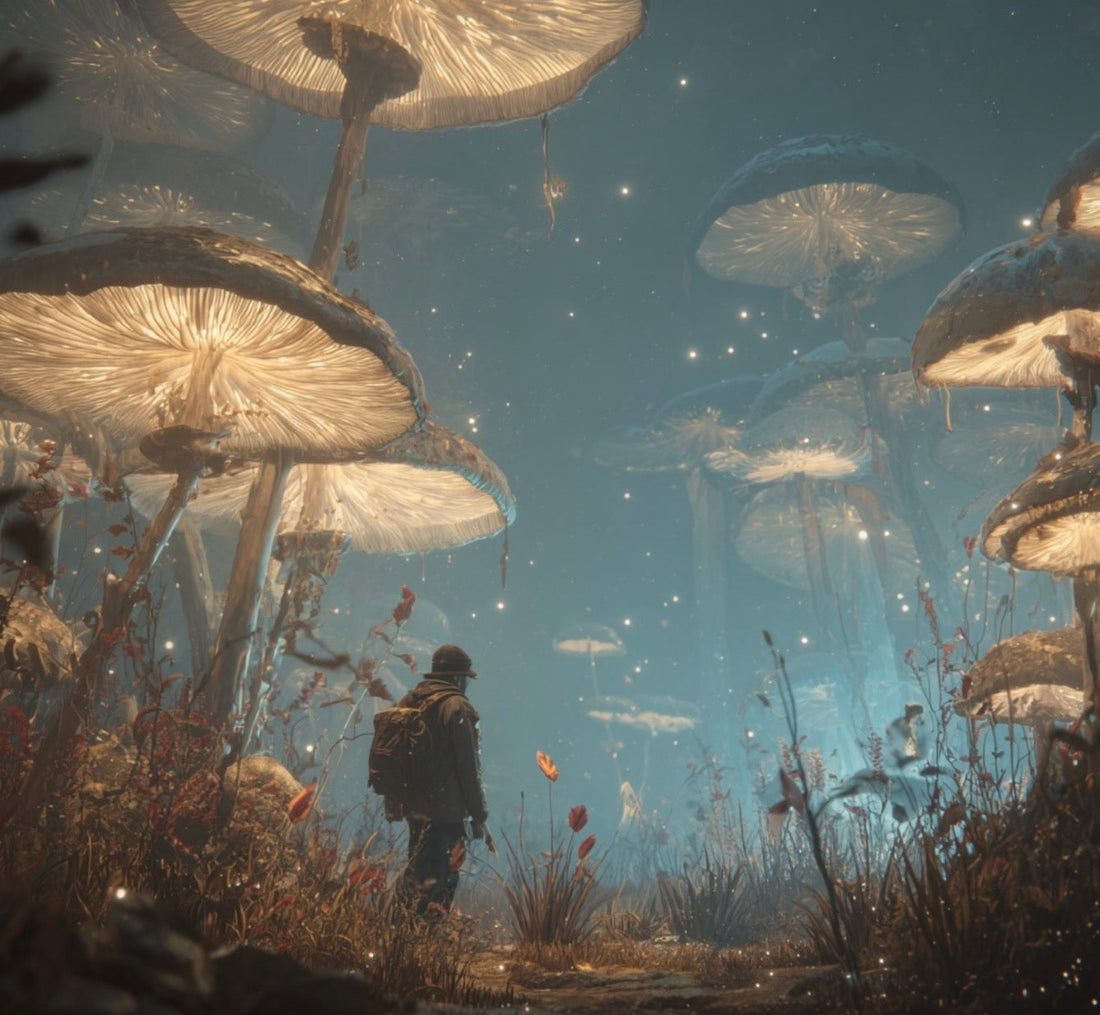
Finding Peace at the Finish Line: Psilocybin's Promise for End-of-Life Relief
08/25/25Share
Psilocybin for End-of-Life Care: A Guide to Finding Peace
Published on August 21, 2025
Introduction: Facing the Sunset with Hope
Mortality is the uninvited guest at the banquet of life. For those facing a life-threatening illness, the shadow of its conclusion can bring overwhelming fear, anxiety, and despair. But what if a path towards acceptance and peace was possible, even as the sun sets?
Psilocybin for end-of-life care is an emerging paradigm challenging our understanding of palliative medicine. Recent clinical trials show that psilocybin, when administered carefully, can significantly relieve depression, anxiety, and the existential distress that often accompanies life's final stages. This article explores whether this could be more than symptom management—a doorway to a more profound and peaceful goodbye.
A Trip Through Time: The Journey of Psilocybin
The story of psilocybin isn’t a modern invention. Its roots are deep in indigenous cultures, where "magic mushrooms" were revered as "teonanácatl" (flesh of the gods) by the Aztecs—tools for spiritual insight, not recreation. The use of psilocybin for end-of-life care, in a spiritual sense, has ancient origins.
In the mid-20th century, Western thinkers like Aldous Huxley saw psychedelics as a key to unlocking the mind and easing the transition from life to death. However, this exploration was halted by the "Psychedelic Winter," as these substances were classified as Schedule I, stifling scientific inquiry for decades and halting any formal research into psilocybin for end-of-life care.
Today, we are in a renaissance. Armed with data and rigorous methodology, scientific study has re-emerged, bringing psilocybin back into the spotlight with cautious optimism.
The New Horizon: What Current Research Uncovers
The latest news is compelling. A recent Phase 2b trial revealed that a single 25 mg dose of psilocybin, combined with psychotherapy, can create a seismic shift for individuals with end-of-life distress. The results show more than just symptom relief; they point to a fundamental change in perspective for those receiving psilocybin for end-of-life care.
Key Clinical Findings:
- Dramatic Reductions in Depression & Anxiety: Patients showed significant improvement in clinical scores for major depressive disorder and generalized anxiety.
- Addresses Existential Distress: The therapy effectively targets the root causes of suffering, including hopelessness, death anxiety, and demoralization.
- Boosts Spiritual Well-being: Many participants reported a renewed sense of connection and an overall improvement in their quality of life. The potential of psilocybin for end-of-life care extends into the spiritual domain.
- Durable and Safe: The positive effects often last for six months or longer, with no serious side effects reported in the trial.
Beyond statistics, patients describe these experiences as profoundly meaningful. They speak of reframing death as a transition, finding peace with their past, and feeling a deeper connection to life—a testament to the transformative power of psilocybin for end-of-life care.
The Future of Psilocybin for End-of-Life Care
The FDA's "Breakthrough Therapy" designation for psilocybin in depression treatment offers hope, potentially fast-tracking approval by 2026-2027. This could pave the way for approving psilocybin for end-of-life care as well.
The vision is to seamlessly integrate this therapy into standard palliative care protocols, supported by interdisciplinary teams. Researchers are also exploring alternative approaches like group therapy or microdosing to broaden accessibility. Legislative efforts are underway to reschedule psilocybin, which is a critical step for the adoption of psilocybin for end-of-life care.

Navigating Uncharted Waters: Debates and Roadblocks
A growing chorus in the medical community sees psilocybin as a vital tool for palliative care, and public opinion is shifting to support it. Yet, significant hurdles for psilocybin for end-of-life care remain.
Current Challenges:
- Legal Labyrinth: While the federal government maintains its Schedule I prohibition, states like Oregon and Colorado are forging ahead with regulated access. The "Right to Try" movement highlights this tension, as terminally ill patients fight the DEA for access to psilocybin for end-of-life care.
- Ethical Considerations: Ensuring informed consent for vulnerable patients, guaranteeing equitable access, and training highly skilled therapists are critical ethical questions that demand careful thought.
- Understanding the Mechanism: While the effects are clear, we are still unraveling how psilocybin "reboots" the brain and fosters these transformative experiences. Larger, more diverse studies are crucial for the future of psilocybin for end-of-life care.










